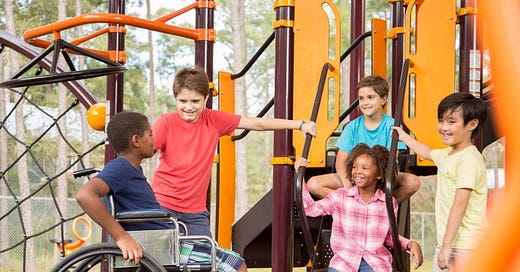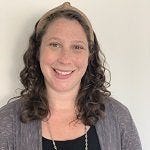Disability Inclusion from Every Angle: 8 Ways the Shiluv Faculty Fellowship Shapes School Culture
By Tali Cohen Carrus, Senior Director of Programs at Gateways
Inclusive education requires a commitment to continuous reflection, dialogue, and action. The Shiluv Faculty Fellowship exemplifies this commitment by empowering educators to reimagine and transform their schools’ approach to disability inclusion. By encouraging faculty members to identify dynamics and mindsets that need change, equipping them with a comprehensive curriculum to implement with their students, and supporting them on their journey to impact change, the program fosters a more equitable school environment for all students.
1. Staff Bias
“There’s a mindset that accommodations are ‘special treatment’ rather than essential for equity.”
This misconception is one of the biggest hurdles to achieving true equity. Accommodations aren’t about giving certain students an advantage; they’re essential to ensuring access to meaningful learning for all students. The Shiluv Program helps educators examine these biases and reframe their understanding of what fairness truly means in a diverse classroom.
2. Social Exclusion
“Some classmates avoid talking to students with disabilities or including them in their play because they’re unsure how to interact.”
Fostering a culture of inclusion begins with awareness. Through experiential activities and guided discussions, the Shiluv fellowship equips educators to engage meaningfully with students. By exploring their own differences and the differences of their peers, and answering questions and dispelling misconceptions, the program cultivates a sense of belonging for every child.
3. Physical Accessibility
“It’s frustrating when people use the accessible bathroom or block ramps, as if they don’t think about who might need them.”
Physical barriers remain a visible yet often overlooked challenge. The program emphasizes the importance of proactive accessibility measures and instills the mindset that accessibility is a collective responsibility, not just a legal obligation.
4. Representation
“We rarely learn about people with disabilities in history or literature, and that needs to change so everyone feels represented.”
Representation matters. When students see individuals with disabilities as an integral and valuable aspect of our collective history, literature, and modern society, it normalizes diversity and challenges stereotypes. The fellowship encourages schools to diversify their curricula and celebrate the contributions of people with disabilities.
5. Valuing Differences
“We need to focus more on valuing and understanding differences rather than just ignoring them.”
Shiluv participants advocate for a shift from tolerance to appreciation. By recognizing and valuing differences, schools can nurture an environment where every student feels seen, understood, and respected.
6. Understanding Accommodations
“I’ve noticed that when someone needs an accommodation, like extra time on a test, other students sometimes think they’re getting an unfair advantage instead of understanding it as equalizing.”
Educating both students and staff about the purpose of accommodations is crucial. The fellowship addresses this by equipping educators with tools to explain and normalize accommodations, ensuring that they are understood as a means to promote equity.
7. Addressing Barriers
“In conversations with parents, there needs to be more of a focus on identifying barriers and problem-solving rather than just focusing on what the student struggles with.”
The fellowship emphasizes systemic change over individual blame. Participants learn to identify and dismantle barriers within their schools and communities.
8. Language
“There’s a lot of unintentional ableist language, like calling someone ‘insane’ or jokingly saying ‘I’m so OCD,’ that normalizes disrespectful attitudes.”
Language shapes culture. Shiluv participants work to raise awareness about ableist language, encouraging staff and students alike to adopt respectful and inclusive communication practices.
The Impact of the Shiluv Faculty Fellowship
By addressing these critical areas, the Shiluv Faculty Fellowship is transforming schools into spaces where students with disabilities can find a true sense of belonging. The program equips educators with the knowledge, tools, and mindset needed to challenge biases, dismantle barriers, and build a culture of true inclusion. Together, we are creating an educational landscape where all students are valued, supported, and empowered to succeed. What mindsets about disability are most in need of change in your community?
Tali Cohen Carrus is the Senior Director of Programs at Gateways. She is passionate about inclusive Jewish education and has worked with youth with and without disabilities in a variety of contexts including schools, synagogues, and summer camps. She has worked extensively as a disability inclusion consultant, partnering with Jewish organizations to improve their capacity to support and meaningfully include all members of the community. Tali holds an M.S.Ed in General and Special Education from Bank Street Graduate School and is a certified DIR/Floortime play therapist. In addition, she received a certificate in Advanced Jewish Studies/Day School Education from the Pardes Center for Jewish Educators and is an alumna of the Wexner Graduate Fellowship/Davidson Scholarship.





